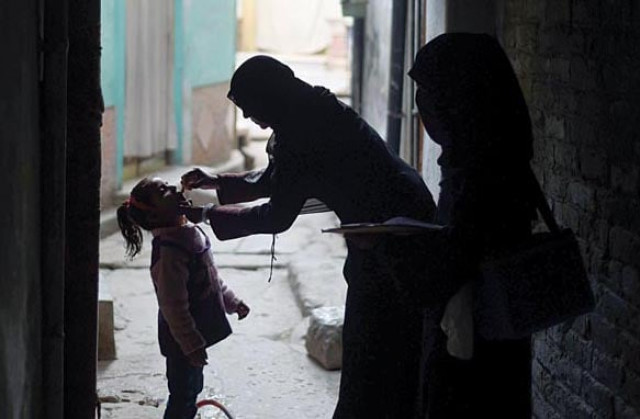Pakistan remains one of the deadliest countries for aid workers: Report
Afghanistan still most perilous country for aid workers

In 2014 total 18 workers were targeted in Pakistan. PHOTO: AFP
According to data released by the Aid Workers Security Database (AWSD), a project of Humanitarian Outcomes, in 2014 a total of 18 workers were targeted in the country, including a foreign aid worker.
Out of these, eight local workers were killed, four were injured while five others were kidnapped.
The country remains a place where aid workers are targeted with impunity as it accounted for about 6.5 per cent of 190 attacks on the humanitarian workers around the world.
The lone foreign victim, not identified by the report, was injured in an attack defined as ‘bodily assault’ by the organisation.
Read: Gunmen kill two women polio workers, policeman in Mansehra
However, attacks and casualties had fallen from 2013 when 22 workers were killed in 17 incidents, accounting for just 6.3% of a total of 264 attacks world wide that year.
With Pakistan plagued with crippling diseases such as polio, measles which require vaccination, the number of attacks on aid workers is too high.
Afghanistan most perilous country for aid workers
Afghanistan, torn by conflict for more than three decades, kept its place as the most dangerous country for aid workers in 2014, with more than a quarter of all attacks on aid staff around the world taking place there, the consulting group Humanitarian Outcomes said.
Read: Bodies of kidnapped polio workers, police guards found in Zhob
Worldwide, there were 190 attacks on humanitarian operations in 2014, a fall of about 30 per cent from the all-time high the year before, the group said in the preview of a report.
In all, 329 aid workers were attacked in 27 countries, of whom 120 were killed, 88 wounded and 121 kidnapped, according to the forthcoming Aid Worker Security Report 2015.
 PHOTO COURTESY: Aid Workers Security Database (AAWSD)
PHOTO COURTESY: Aid Workers Security Database (AAWSD)"The number of casualties being lower in 2014 than a year before says more about the spike in 2013 than about the conditions for aid workers getting any safer," Abby Stoddard, one of the report's authors, told the Thomson Reuters Foundation.
"The number of attacks in 2014 is still higher than in any previous year, but aid agencies have become more risk averse and are changing their mode of operating."
Stoddard said the numbers were driven by just a few highly insecure conflict environments, with almost 65 per cent of all attacks occurring in just five countries: Afghanistan, Syria, South Sudan, Central African Republic and Pakistan.
There were 54 attacks last year on aid workers in Afghanistan, where security has been deteriorating since foreign troops began withdrawing in 2011.
The violence shows little sign of abating in 2015.
Nine Afghan employees of a Czech-backed aid group, People in Need, were shot and killed by unidentified militants in northern Balkh province in June.
In April the bodies of five Afghan aid workers employed by Save the Children were found 39 days after their abduction by the Taliban in the central province of Uruzgan.
The final Aid Worker Security Report 2015 will be published in the autumn.



















COMMENTS
Comments are moderated and generally will be posted if they are on-topic and not abusive.
For more information, please see our Comments FAQ